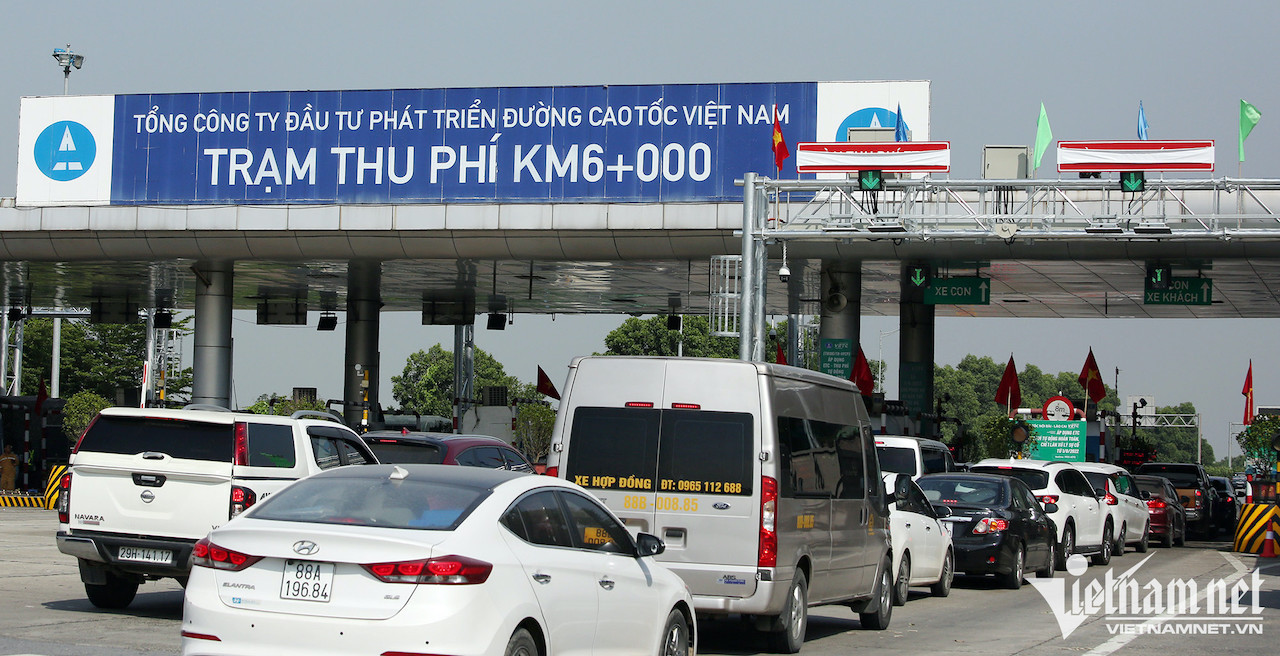
A recent report revealed that over 590,000 vehicles ran out of funds in their Electronic Toll Collection (ETC) accounts last year, causing congestion at toll stations. This has raised questions about why ETC systems are not directly linked to bank accounts for automatic deductions.
Congestion caused by empty ETC accounts
The Vietnam Expressway Corporation (VEC) reported that on four expressways under its management, over 590,000 vehicles lacked sufficient funds in their ETC accounts in the past year.
This shortage disrupted traffic flow and created safety risks at toll plazas, where vehicles often approach at high speeds.
VEC representatives have urged vehicle owners to maintain sufficient balances in their toll accounts to prevent delays and ensure smooth traffic.
However, this issue has prompted many drivers to question why toll fees cannot be directly deducted from bank accounts, which would eliminate the need for manual top-ups.
Current system limitations
The current law requires drivers to pay road-related fees through dedicated transportation accounts, such as VETC accounts. These accounts allow for cashless transactions and are linked to payment methods like bank cards or digital wallets.
Using the VETC app, customers can connect their accounts to a bank, enabling free transactions such as deposits, withdrawals, or transfers.
However, when using intermediaries like VNPAY, users may incur additional fees, as these are imposed by the intermediary, not VETC.
A representative of the toll service provider explained why direct bank account deductions are not feasible:
“The speed at which vehicles pass through toll gates on expressways is very high. If the bank’s system cannot process the transaction quickly enough, it could cause barriers to malfunction, leading to accidents.
Currently, neither Vietnam nor other countries with ETC systems deduct toll fees directly from bank accounts.”
Recommendations for smoother operations
ETC accounts do not require a minimum balance. However, toll service providers recommend users top up their accounts sufficiently for each trip or link their accounts to banks for easier management.
Dr. Tran Huu Minh, Chief of the Office of the National Traffic Safety Committee, highlighted the inefficiencies caused by empty ETC accounts. He suggested imposing stricter penalties for repeat offenders to enhance compliance.
For instance, drivers with insufficient funds in their ETC accounts could face additional fees:
First offense: A surcharge of 100,000 VND (approximately $4).
Second offense within a year: An additional 300,000 VND ($12).
Third offense: A 1 million VND ($40) fine, escalating to 2 million VND ($80) for subsequent violations.
Dr. Minh also proposed deducting points from drivers’ licenses based on the frequency of offenses.
These measures, he argued, should be formalized in legal documents to improve compliance.
Under Decree 100, drivers with ETC-related violations, such as insufficient funds or unregistered tags, face fines ranging from 2 to 3 million VND ($80-$120). Additionally, violators may have their driver’s licenses suspended for 1-3 months.
N. Huyen